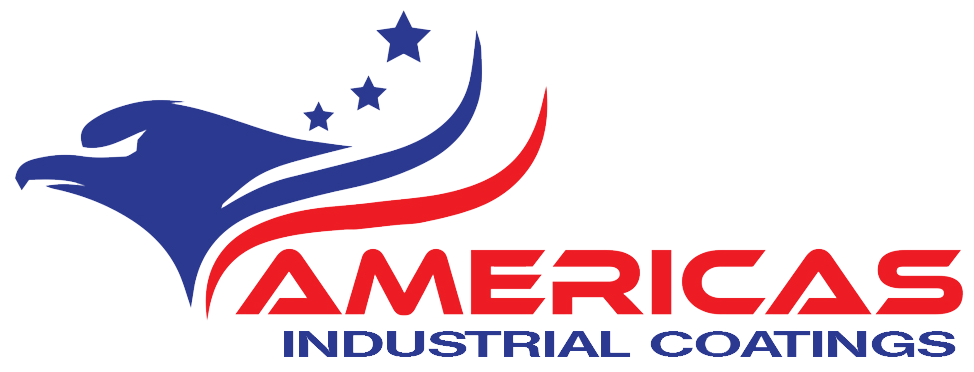When considering a makeover for your garage, one of the most practical and visually appealing options is applying an epoxy coating. This durable flooring solution not only enhances the aesthetic appeal of your garage but also adds a protective layer against stains, chemicals, and wear. However, a common question that arises is, “How much is epoxy for a garage floor?” Understanding the cost involves several factors including the type of epoxy, surface preparation, and whether you choose to hire a professional or undertake a DIY project.
Typically, the cost of epoxy for a garage floor can range significantly. **Material costs** can be influenced by the quality and type of epoxy used, with prices starting at approximately $3 to $12 per square foot. **Professional installation** can add to this cost, ranging from $4 to $15 per square foot, depending on the complexity of the job and the contractor’s experience. While it might be tempting to cut costs with a DIY approach, hiring experts can save time and ensure a flawless finish.
For those who are contemplating this investment, it’s essential to weigh the **long-term benefits** against the initial costs. Epoxy floors are known for their longevity, ease of maintenance, and added value to your property. If you’re ready to transform your garage with an epoxy floor, Call Us Today for a Free Quote and let our experts at Americas Industrial Coatings guide you through the process.
Factors Influencing Epoxy Pricing
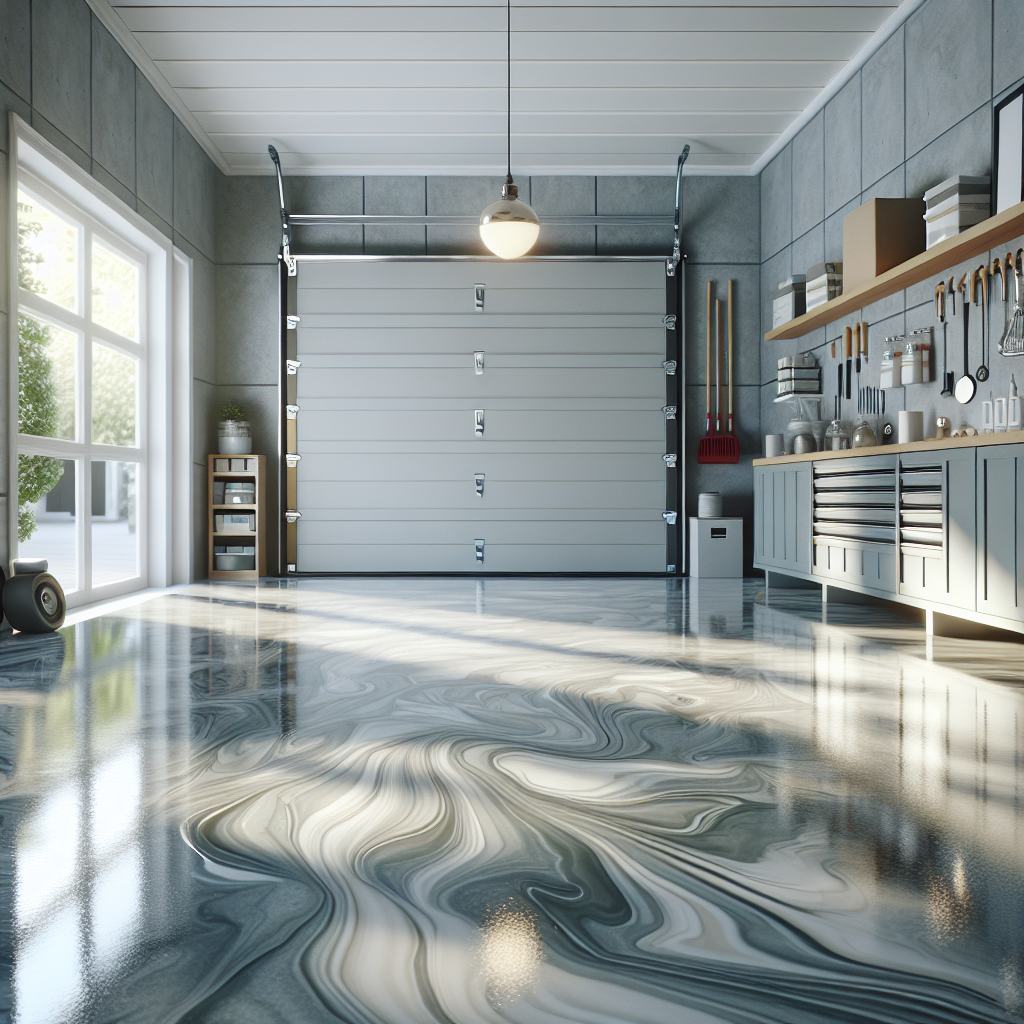
When assessing the cost of epoxy for your garage floor, it’s crucial to consider several factors that influence pricing. These variables can significantly affect the overall expense, either increasing or decreasing your budget.
First, the type of epoxy chosen plays a pivotal role in the cost. There are various types, including solid, solvent-based, and water-based epoxies. Solid epoxy is generally the most durable and expensive option, while water-based is often more economical but less robust. The choice depends on the desired durability and aesthetic appeal.
The condition of the existing floor is another critical factor. If your garage floor is in good condition, less preparation will be needed, thus reducing costs. Conversely, if the floor has cracks, stains, or uneven surfaces, additional work such as cleaning, repairing, and leveling will be required, which can increase the expense.
Size and complexity of the area also affect pricing. Larger garages may benefit from bulk pricing, but intricate designs or multiple colors can add to the cost. Customization often requires more time and materials, impacting the final price.
Lastly, whether you opt for a DIY approach or professional installation will influence the cost. While DIY kits may seem cheaper, they can lead to higher costs in the long run if not applied correctly, potentially requiring professional correction. Professional installation ensures quality and longevity, often justifying the additional cost.
Understanding these factors will help you make an informed decision when planning your garage floor epoxy project, ensuring you achieve the best results within your budget.
Comparing DIY and Professional Installation
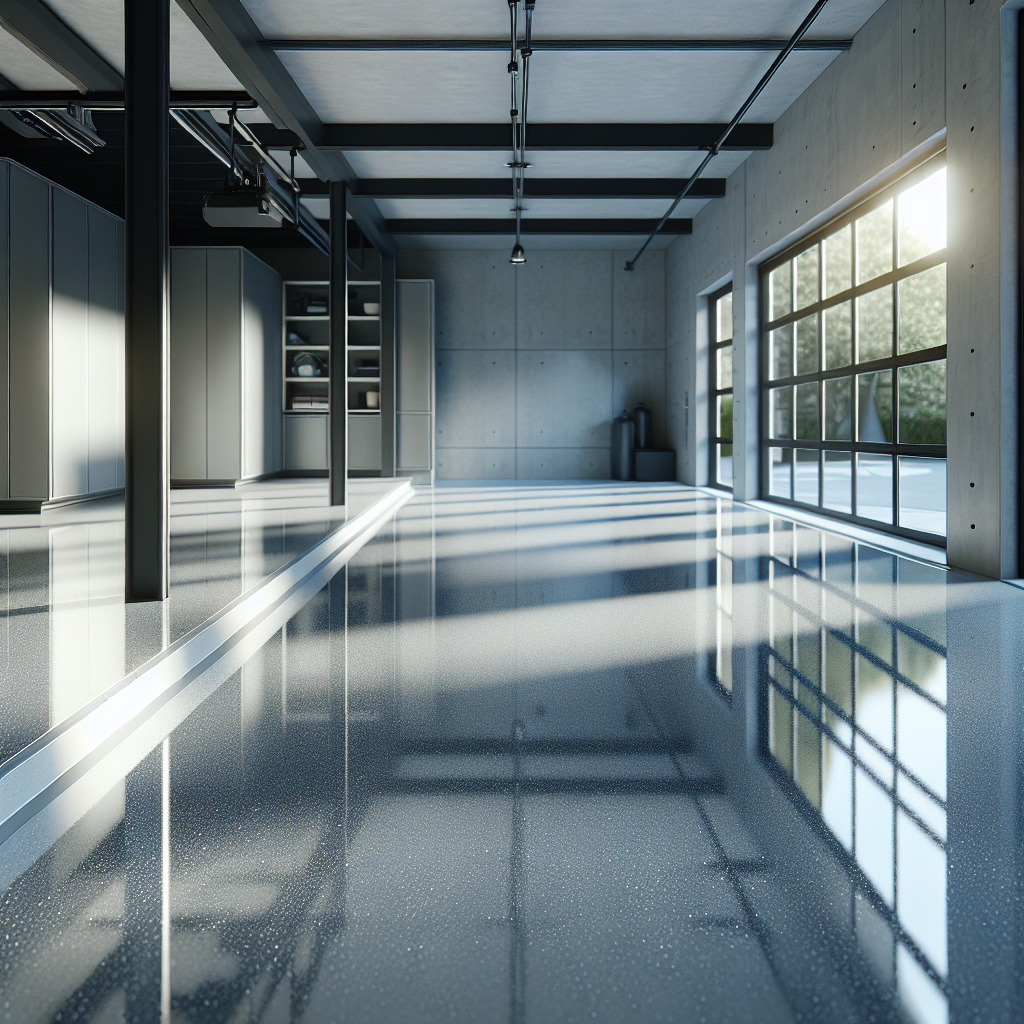
Choosing between a DIY epoxy installation and hiring a professional can significantly impact both the quality and cost of your garage floor project. Each option comes with distinct advantages and challenges that should be carefully weighed.
DIY installation is often appealing due to its cost-saving potential. With numerous DIY kits available on the market, homeowners can find a range of products catering to different budgets. These kits typically include the necessary materials and instructions, allowing you to apply the epoxy at your own pace and convenience. However, a DIY approach requires a high level of precision and preparation. Any mistakes in mixing or application can lead to imperfections such as bubbles, uneven surfaces, or peeling, which might necessitate costly repairs.
On the other hand, professional installation offers a level of expertise and assurance that is difficult to match. Professionals have the experience to handle any unforeseen issues with the existing floor, ensuring a smooth and durable finish. They use high-quality materials and equipment that might not be accessible to the average homeowner, leading to a longer-lasting and aesthetically pleasing result. Additionally, professionals can provide customized designs and finishes, adding unique value to your garage floor.
While professional installation is typically more expensive initially, it can be more cost-effective in the long run by reducing the risk of errors and ensuring a high-quality finish. Ultimately, the choice between DIY and professional installation should be based on your budget, skill level, and the desired outcome for your garage floor.
Estimating Total Epoxy Installation Cost
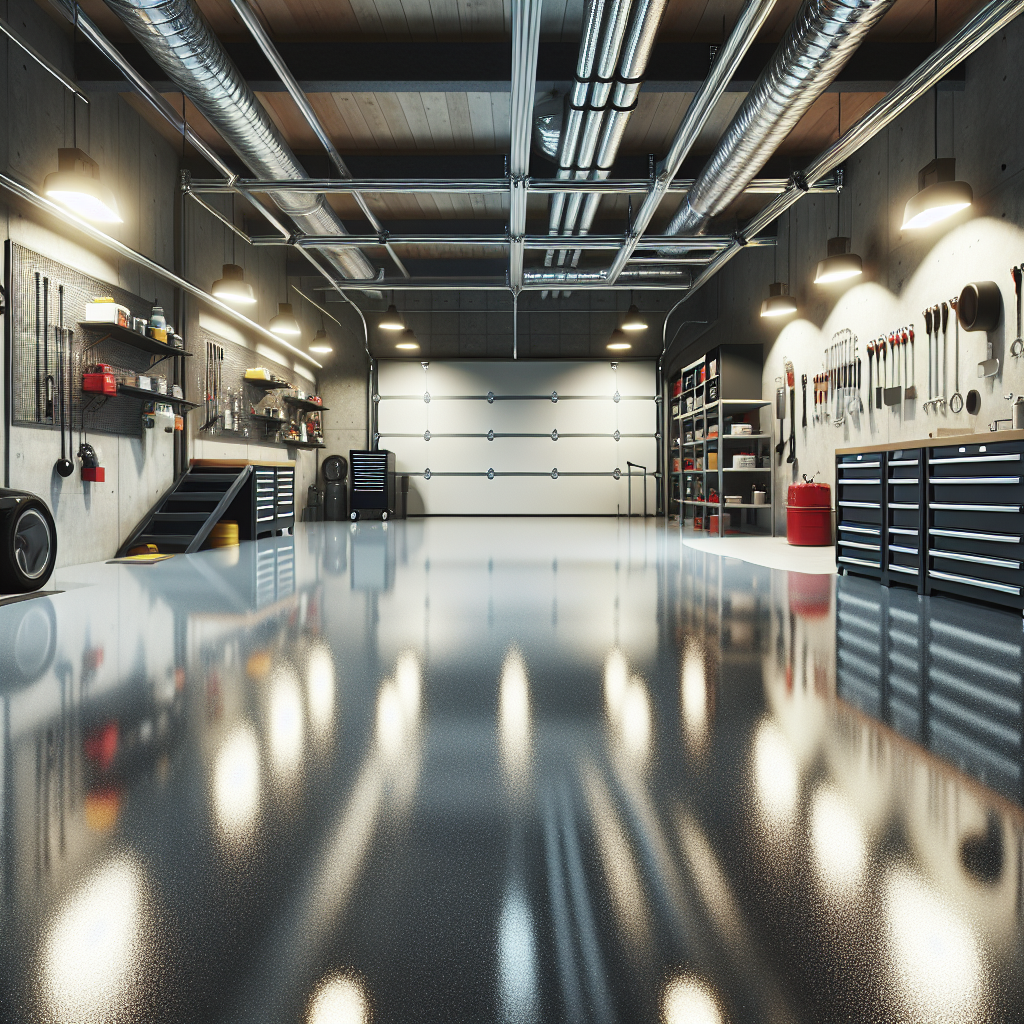
When estimating the total cost of epoxy installation for your garage floor, several factors need to be considered. These elements can vary widely, affecting your overall budget. Understanding these factors will help you make informed decisions and avoid unexpected expenses.
Firstly, the size of your garage plays a crucial role in determining the cost. Epoxy pricing is typically based on square footage, so a larger garage will require more materials, thereby increasing the cost. It’s essential to measure your garage accurately to get a realistic estimate.
Next, the condition of the existing concrete floor is another significant consideration. Floors with cracks, stains, or other damage may require additional preparation work, such as cleaning, patching, or even grinding. These preparatory steps are crucial for ensuring the epoxy adheres properly, but they can add to the overall cost.
The type of epoxy used is another variable that affects pricing. There are different grades and types of epoxy, ranging from basic single-coat systems to more durable multi-layer systems. Higher-quality epoxies tend to last longer and provide better protection, though they come with a higher price tag.
Moreover, if you opt for professional installation, labor costs will be a significant part of your budget. These costs can vary based on the complexity of the job, the experience level of the installer, and regional labor rates.
Finally, additional features such as decorative finishes, anti-slip additives, or UV-resistant topcoats can enhance the functionality and aesthetics of your floor. While these features may increase the initial investment, they often add long-term value.
Long-Term Benefits of Epoxy Flooring
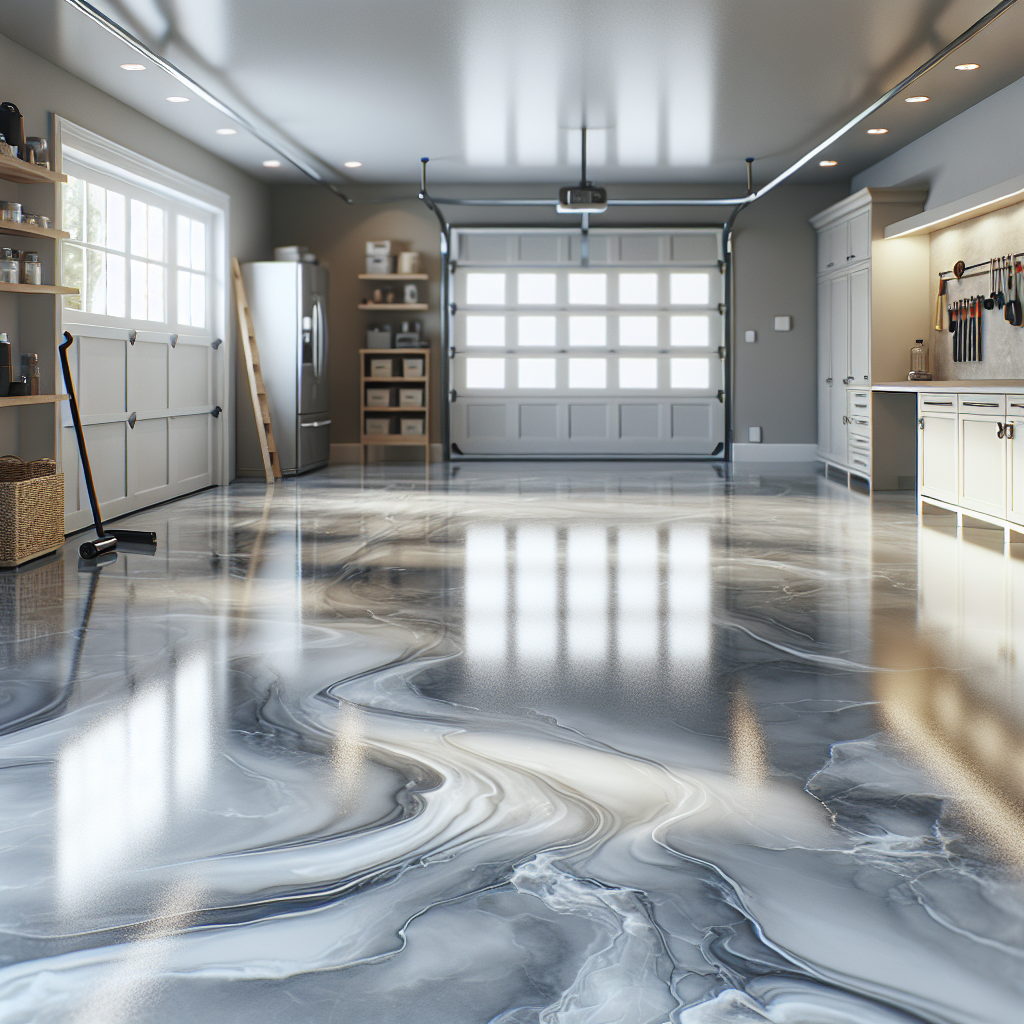
Epoxy flooring is not just a cost-effective solution for your garage; it also offers numerous long-term benefits that make it a worthwhile investment. One of the most significant advantages is its durability. Epoxy coatings are known for their ability to withstand heavy traffic, impacts, and abrasions, making them ideal for garage environments where cars, tools, and heavy equipment are frequently moved.
Another key benefit is the chemical resistance of epoxy floors. They can handle spills of oil, gasoline, and other chemicals without staining or damage, making maintenance much easier compared to other flooring types. This resistance not only provides a safer environment but also reduces the time and money spent on cleaning and repairs.
Epoxy flooring also enhances the aesthetic appeal of your garage. With a wide range of colors and finishes available, including metallic and flake options, you can customize the appearance to match your personal style or home decor. This not only improves the look of your garage but can also add to the overall value of your property.
Moreover, epoxy floors are easy to maintain. Their seamless surface prevents dirt and dust accumulation, and regular sweeping or mopping is usually sufficient to keep them looking pristine. This low maintenance requirement is particularly beneficial for busy homeowners who need a reliable and efficient flooring solution.
Finally, the installation of epoxy flooring can contribute to better lighting in your garage. The glossy finish reflects light, increasing the brightness of the space without additional electrical costs. This improved visibility can enhance safety and convenience, making it easier to work on projects or find items stored in the garage.
Maintenance Tips for Epoxy Garage Floors
Maintaining your epoxy garage floor is essential to ensuring its longevity and keeping it looking as good as new. With the right care, your epoxy floor can remain pristine for years, providing a durable and attractive surface for your garage. Here are some practical maintenance tips to help you keep your epoxy flooring in top condition.
- Regular Cleaning: Sweep or vacuum your epoxy floor regularly to remove dirt and debris. This prevents scratches and maintains its glossy finish. For more thorough cleaning, use a mop with a mild detergent and warm water.
- Avoid Harsh Chemicals: While epoxy floors are resistant to many chemicals, it’s best to avoid using harsh cleaning agents that can dull the finish. Opt for products specifically designed for epoxy flooring.
- Immediate Spill Management: Quickly clean up spills, especially oil and other automotive fluids, to prevent staining. Use absorbent materials like paper towels or a soft cloth to blot the spill before cleaning the area with soapy water.
- Protective Measures: Place mats or pads under heavy tools and machinery to prevent scratches and impacts. This simple step can significantly extend the life of your epoxy flooring.
- Polishing: Occasionally, you can use a high-quality epoxy polish to restore the shine of your floor. This will enhance its appearance and provide an extra layer of protection.
By following these maintenance tips, you can ensure that your epoxy garage floor continues to provide a durable and visually appealing surface. If you are considering installing epoxy flooring, or if you need professional assistance in maintaining your current epoxy floor, call us today for a free quote and let our experts at Americas Industrial Coatings assist you with your flooring needs.
